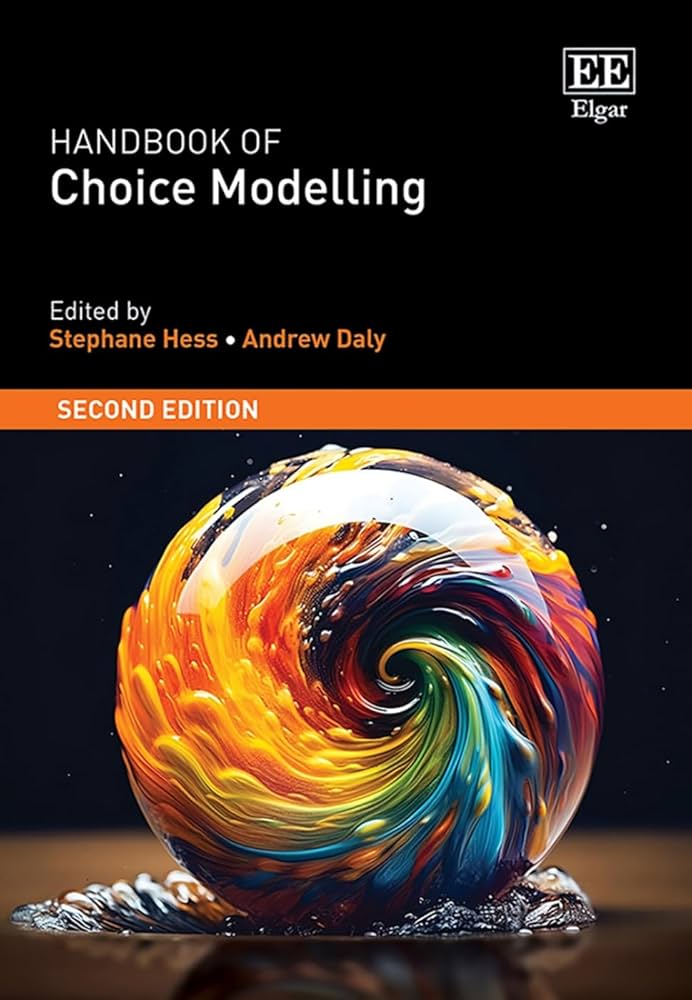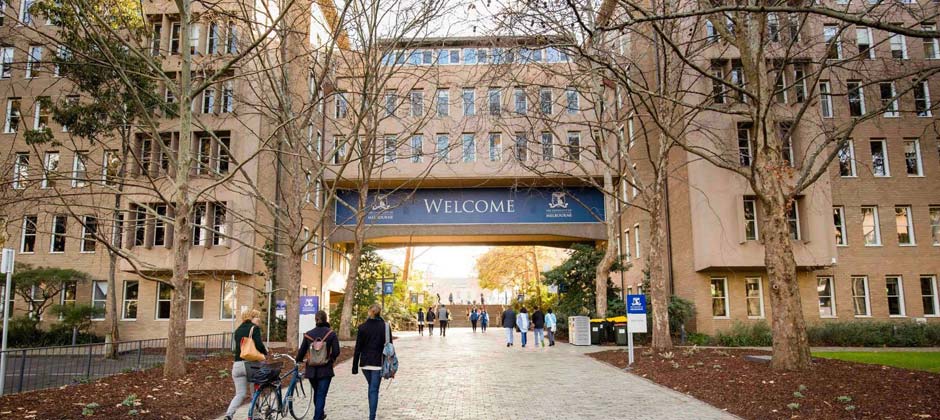This 2-day masterclass introduces students to choice models, discusses and contrasts the family of available model structures, and also talks about the data requirements, model estimation, and the use of models to produce outputs for policy. The course consists of a mix of theoretical lectures and case studies.
This course is being hosted in-person at the University of Melbourne
This course will be followed up by the Applied Choice Modelling using Apollo Master-class on February 5-6, also in-person at the University of Melbourne.

Choice modelling is a specialised area of micro-econometrics that develops and applies mathematical models that represent human decision making. Choice models are used extensively to understand current behaviour and predict future choices in the applied fields of the economic sciences, especially environmental, health, and transport economics. Other application areas include business and marketing. In addition to addressing questions of academic interest, choice modelling informs policy and strategy making in these applied economic disciplines.
This 2-day masterclass introduces students to choice models, discusses and contrasts the family of available model structures, and also talks about the data requirements, model estimation, and the use of models to produce outputs for policy. The course consists of a mix of theoretical lectures and case studies.
Stephane Hess is Professor of Choice Modelling and Director of the Choice Modelling Centre at The University of Leeds (UK). Stephane is a globally recognised leader in choice modelling with interests in behavioural models, travel behaviour, health choices, and decision making. His specific academic contributions include developing advanced choice models and empirical contributions across many fields. He is the editor of the Journal of Choice Modelling (the leading international, interdisciplinary journal in choice modelling), the chair of the International Choice Modelling Conference, and co-developer of Apollo (with David Palma, Leeds, UK), a widely used (open-source) estimation software for choice models.
This two-day masterclass introduces students to the fundamentals of choice modelling through a series of lectures. The masterclass will specifically introduce participants to the family of econometric models that are typically used in choice modelling – both in academic and applied projects. Examples are used throughout the masterclass with application areas including environmental, health, and transport economics.
The target audience includes both academic and applied researchers including university researchers and research students, and researchers and policymakers from government agencies and departments.
Day 1
- Session 1: Introduction to choice modelling and data for choice modelling (revealed and stated preferences).
- Session 2: Random utility theory and the Multinomial logit model (MNL).
- Session 3: Model estimation, specification testing, interpretation of MNL results and forecasting.
- Session 4:Models allowing for flexible error structures, including Nested and Cross-Nested Logit
Day 2
- Session 1: Allowing for deterministic heterogeneity in preferences
- Session 2: Random heterogeneity, including Mixed Logit and Latent Class; Advanced model estimation in Apollo
- Session 3: Advanced modelling topics, including Hybrid choice models and departures from the Random Utility framework
- Session 4: Choice modelling in practice, joint estimation on RP and SP data, and use of novel data sources.
This is a lecture-based masterclass delivered in person.
The masterclass consists of a series of lectures and interactive discussion sessions.
Participants should be willing to participate in these (facilitated) discussion sessions.
Participants should have some familiarity with linear and logistic regression.
There is no requirement for previous experience in choice modelling.
Hess, Stephane and Andrew Daly (eds.) (2014), Choice Modelling: The State-of-the-Art and the State-of-Practice. Cheltenham, UK; Northampton, MA: Edward Elgar Publishers.
Train, Kenneth (2009), Discrete Choice Methods with Simulation. Cambridge University Press, Cambridge MA.
Enabled me to have entry level knowledge for this technique
Good level of detail

The University of Melbourne's Parkville Campus one of the oldest and largest university campuses in Australia. It is located just beyond the Northern border of Melbourne's CBD. Lygon Street and Carlton Gardens are located a short walk to the East, Queen Victoria Market to the South and Royal Park to the North West.
A campus map is available here.
The campus is centrally located so there is a huge variety of accommodation options available. Virtually any accommodation in Parkville, Carlton, North Melbourne and the top part of the CBD will be within easy walking distance. Even outside those areas, the university is walkable or a short tram ride. Please note that Melbourne University is outside the Melbourne CBD free tram zone.
A number of on-campus residential colleges are listed here, most of which are about a 10 min walk from where most ACSPRI courses will be held (cnr Pelham and Berkerley Sts). Some of these may have casual, short term accommodation available but you will need to contact each one directly (Graduate House, International House, Newman College, University College and Queens College).
If you're looking for a hotel near the University, we suggest googling 'hotels near The University of Melbourne' and you'll get many options. You can also choose to stay in the Melbourne CBD and take a tram to the campus. Please note that Melbourne University is just outside the CBD's free tram zone & you will need a public transport card or to download the public transport app - MYKI (not for iphones- sorry!), to travel to the University. Inspectors regularly check for tickets outside the free tram zone & there is a subsantial fine for not having a validated MYKI card.
Public Transport
The Parkville Campus is well serviced by trams with numerous routes from the Inner South and South East travelling travelling through the heart of the CBD on Swanston Street, past Flinders Street and Melbourne Central Train Stations and on to the University. Some of these routes continue on to the inner-North. If you are staying in the CBD, there are also several routes that travel up Elizabeth Street, which runs past the bottom SE corner of the campus, very close to the FBE and Spot Buildings, where we hold our courses. All metropolitan train lines will stop at Flinders Street if not Melbourne Central as well. A journey planner for all of Melbourne's buses, trams and trains can be found here. Please note that Melbourne University is outside the Melbourne CBD free tram zone, please use a valid MYKI card or the Android MYKI App or risk a fine.
A MYKI card or the Android MYKI App, is the only ticketing system available for travel on Melbourne's public transport system. Visitors to Melbourne can find out more about MYKI and how to use Melbourne's public transport here. As mentioned above, Melbourne University is just outside the CBD's free tram zone & you will need a public transport card or Android App - MYKI, to travel to the University. Inspectors regularly check for tickets outside the free tram zone & there is a substantial fine for not having a validated MYKI. Android MYKI instructions are here. Sorry not available for Apple phones!
If travelling up Swanston Street by tram, the best stop is at Lincoln Square, the stop after Queensberry Street and three stops before the main campus entrance, where several routes terminate. Pelham Street is on both sides of Lincoln Square, you will need to cross the square and walk up the other section of Pelham Street for five minutes.
If travelling up Elizabeth Street, the best stop is just before the large junction of Elizabeth Street, Flemington Road, Pelham Street and Peel Street, which has a large Australian flag on a pole in the middle of it. This is also the stop after Queensberry Street. From here you should be able to see The Spot Building 130m away on Pelham Street.
Driving
If driving, all day parking is available fairly close to The Spot and FBE Buildings in the public car parks. University Square Car Park is the closest. It is $30 per day with access via Bouverie St or under the Alan Gilbert building off Berkeley St. You can access a list of public car parks and their fees and charges here.
